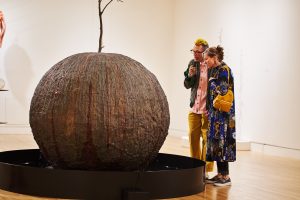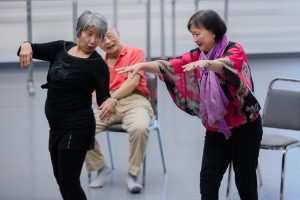Leave a legacy and make a long-term impact on the arts!
By making a planned gift to ArtsFund, you will enable ArtsFund to plan for the future and strengthen our programs to successfully fulfill our mission.
ArtsFund has been a leader in supporting arts and culture through leadership, advocacy, and grantmaking since 1969. Our work impacts non-profit organizations across Washington and across artistic disciplines. We strive for equity by centering those most impacted by systemic oppression, including Black, Indigenous, and People of Color (BIPOC); LGBTQ+; and people with disabilities. Leaving a legacy with ArtsFund means knowing that your gift will create a bright future for the arts in Washington.
If you intend on making a planned gift to ArtsFund, you will join our planned giving society, the ArtsFund Luminaries. Your involvement will help create a community with a dynamic, equitable, and robust cultural sector where the arts are accessible to all and valued as central and critical to a healthy society. You will also receive tax benefits as a result of your planned gift*.


How can I make a planned gift to ArtsFund?
Planned giving is an investment in the future. Most planned gifts are arranged in the present to be allocated at a future date, such as through a will or trust. However, some planned gifts, such as gifts of stock or an IRA distribution, can be made in the present and contribute to a donor’s giving plan for the year. Learn more below.
• Include a bequest to ArtsFund in your will.
o If you are interested in making a bequest to ArtsFund in your will, we invite you to use the following sample language to designate ArtsFund as a beneficiary: “I intend to give to ArtsFund, a 501(c)(3) non-profit corporation (EIN 91-0839644), the following sum of dollars or percentage of my estate to be used for unrestricted purposes [or specify purpose]: ______________________________.”
• Designate ArtsFund as a beneficiary on your life insurance or retirement fund.
o One of the simplest ways to make a gift to ArtsFund is to designate ArtsFund as a beneficiary of your life insurance or retirement fund. To do so, we invite you to contact your retirement fund plan administrator or a representative at your life insurance provider who will provide guidance in designating ArtsFund as a beneficiary of all or a portion of your fund or policy.
• Make a distribution from your IRA or a stock gift.
o For an IRA distribution: Immediate tax-free gifts may be made by directly transferring up to $100,000 annually from your traditional IRA or Roth IRA to ArtsFund. You must be 70 ½ years or older at the time of the gift.
o For a stock gift: The most common way is to make an outright gift of your securities. If you plan on making a stock gift, please email Chelsea Judd, Donor Relations Manager, at chelseajudd@artsfund.org for more information.
• Give a gift of real estate or physical assets, including works of art.
o We encourage you to reach out directly to Kaitlin Hurley, Annual Giving Manager, by emailing kaitlinhurley@artsfund.org or calling 206-788-3045 to discuss potential gifts of real estate or art.
HELP ENSURE A HEALTHY ECOSYSTEM IN WHICH THE ARTS IMPROVE THE QUALITY OF LIFE FOR ALL BY BECOMING AN ARTSFUND LUMINARY TODAY!


Contact us
We welcome a conversation to best align your values and intentions with ArtsFund’s mission and programs and are happy to include your family, financial advisor, or attorney in the process. If you would like to discuss which planned gift is the best fit for you, please email development @artsfund.org or Kaitlin Hurley, Annual Giving Manager, at kaitlinhurley@artsfund.org or 206-788-3045.
*Tax benefits are contingent on the type of planned gift made. Please consult your financial advisor or reach out to an ArtsFund staff member for more information. ArtsFund is a 501(c)(3) tax-exempt non-profit organization and our EIN is 91-0839644.
